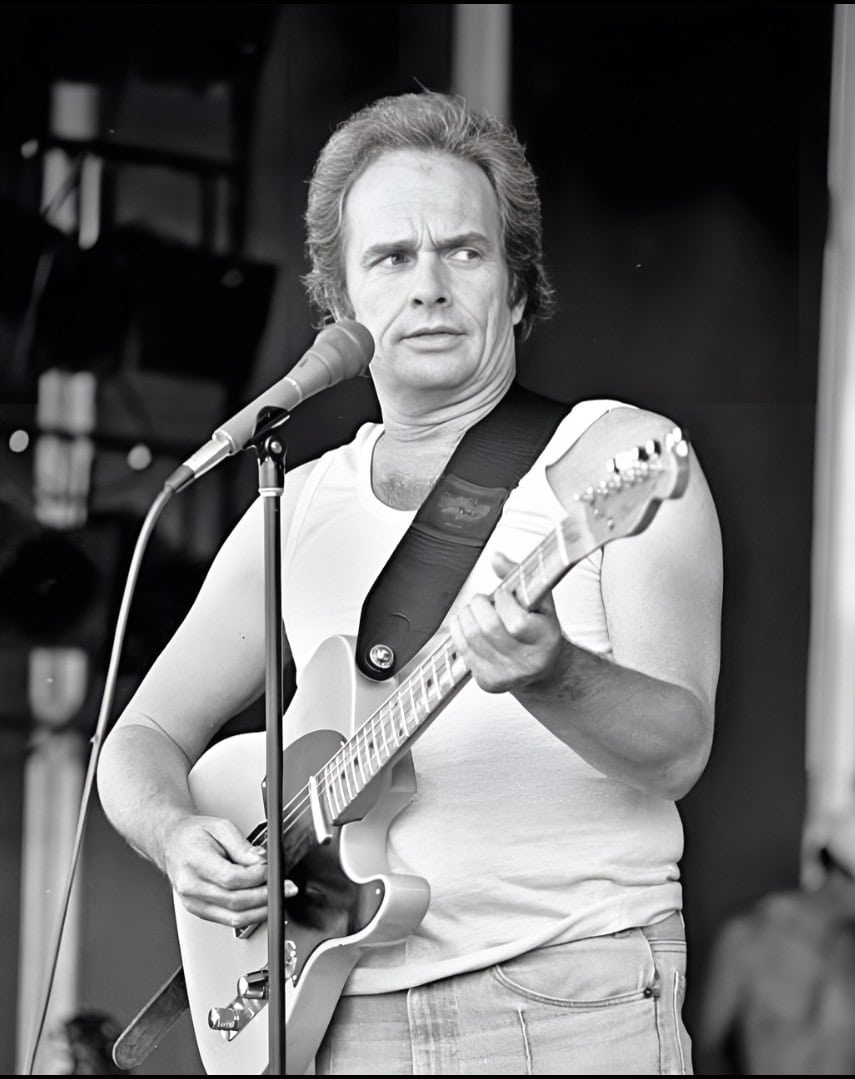
About the song
“Sing Me Back Home” is one of Merle Haggard’s most poignant and emotionally charged songs, reflecting his deep connection to themes of redemption, sorrow, and the human spirit. Released as a single in 1967, the song was written by Haggard and quickly became one of his most beloved and enduring hits. It also serves as the title track for his 1968 album, *Sing Me Back Home*, which further solidified his status as a leading figure in country music.
Merle Haggard, known for his gritty, authentic storytelling, drew inspiration for “Sing Me Back Home” from his own experiences and observations during his time at San Quentin State Prison. The song tells the story of an inmate’s final moments before execution, requesting a song that reminds him of better times. This haunting narrative is delivered with Haggard’s signature blend of sincerity and raw emotion, making it a standout in his extensive catalog.
The song’s success was marked by its performance on the charts. “Sing Me Back Home” reached number one on the Billboard Hot Country Singles chart in 1968, becoming Haggard’s third number-one hit. Its poignant lyrics and heartfelt delivery resonated deeply with listeners, contributing to its lasting popularity and critical acclaim.
The *Sing Me Back Home* album, released in January 1968, also includes other notable tracks such as “The Son of Hickory Holler’s Tramp” and “Wine Take Me Away.” The album itself was well-received, further showcasing Haggard’s ability to blend personal experience with universal themes, making his music relatable to a broad audience.
Haggard’s songwriting on “Sing Me Back Home” is a masterclass in simplicity and depth. Lines like “Sing me back home with a song I used to hear, make my old memories come alive” capture the essence of longing and the comfort found in music. The song’s arrangement, featuring mournful guitar and understated instrumentation, perfectly complements Haggard’s soulful voice, enhancing the overall emotional impact.
For an older and educated audience, “Sing Me Back Home” offers a glimpse into Haggard’s unique ability to convey complex emotions through straightforward storytelling. The song’s reflection on themes of loss, redemption, and the power of music resonates with those who have experienced life’s ups and downs, making it a timeless piece that continues to touch hearts.
In conclusion, Merle Haggard’s “Sing Me Back Home” stands as a testament to his exceptional talent as a songwriter and performer. Its chart-topping success and enduring appeal highlight the song’s significance in Haggard’s career and in the country music genre. Whether you’re a longtime fan or new to his music, “Sing Me Back Home” remains a powerful and moving testament to the enduring power of a well-crafted song.

Video
Lyrics
The warden led a prisoner down the hallway to his doom
I stood up to say goodbye like all the rest
And I heard him tell the warden just before he reached my cell
Let my guitar playing friend, do my request
Let him sing me back home with a song I used to hear
Make my old memories come alive
Take me away and turn back the years
Sing me back home before I die
I recall last Sunday morning a choir from ‘cross the street
Came to sing a few old gospel songs
And I heard him tell the singers
There’s a song my mama sang
Can I hear once before we move along?
Sing me back home, the song my mama sang
Make my old memories come alive
Take me away and turn back the years
Sing me back home before I die
Sing me back home before I die